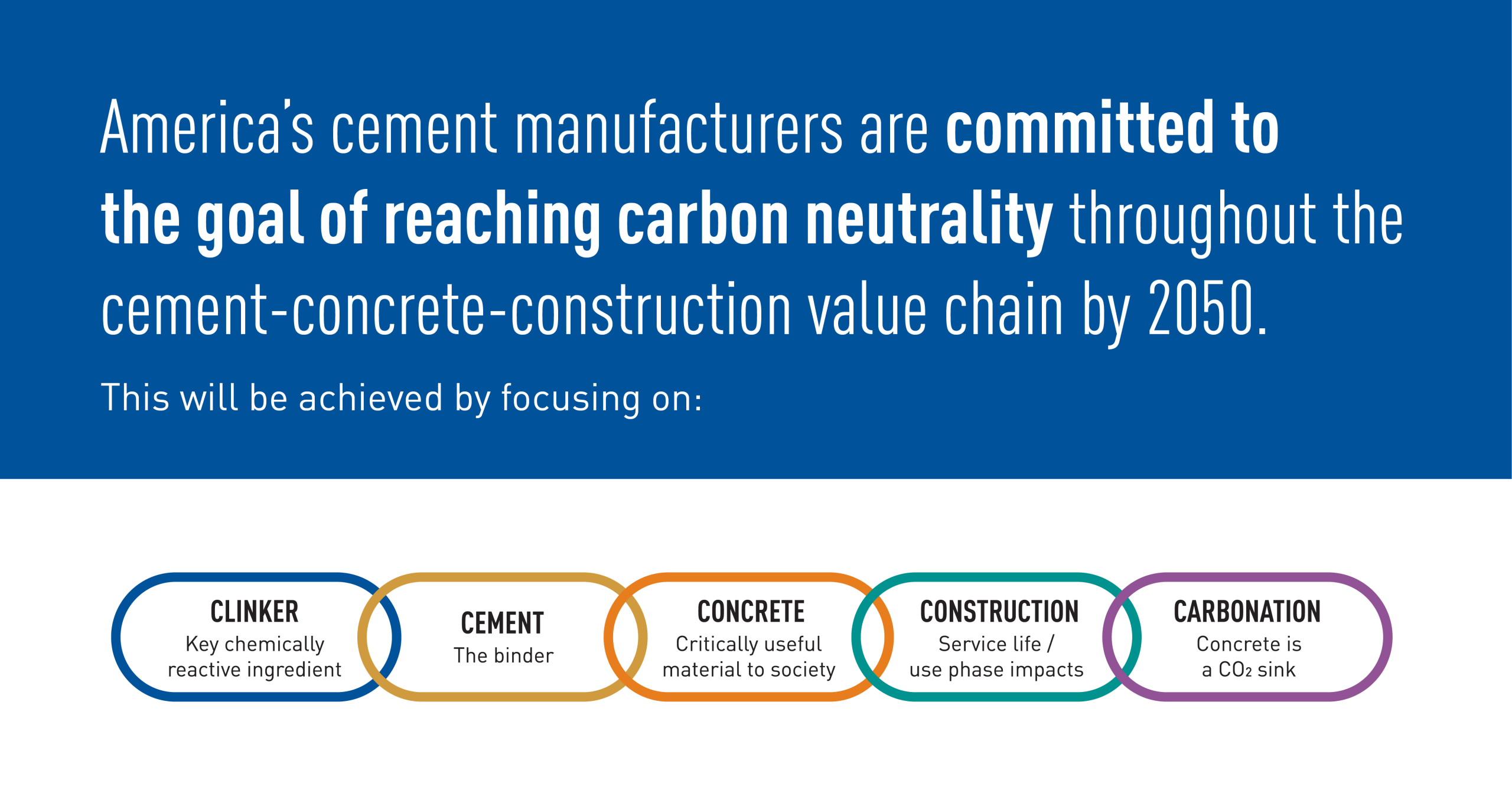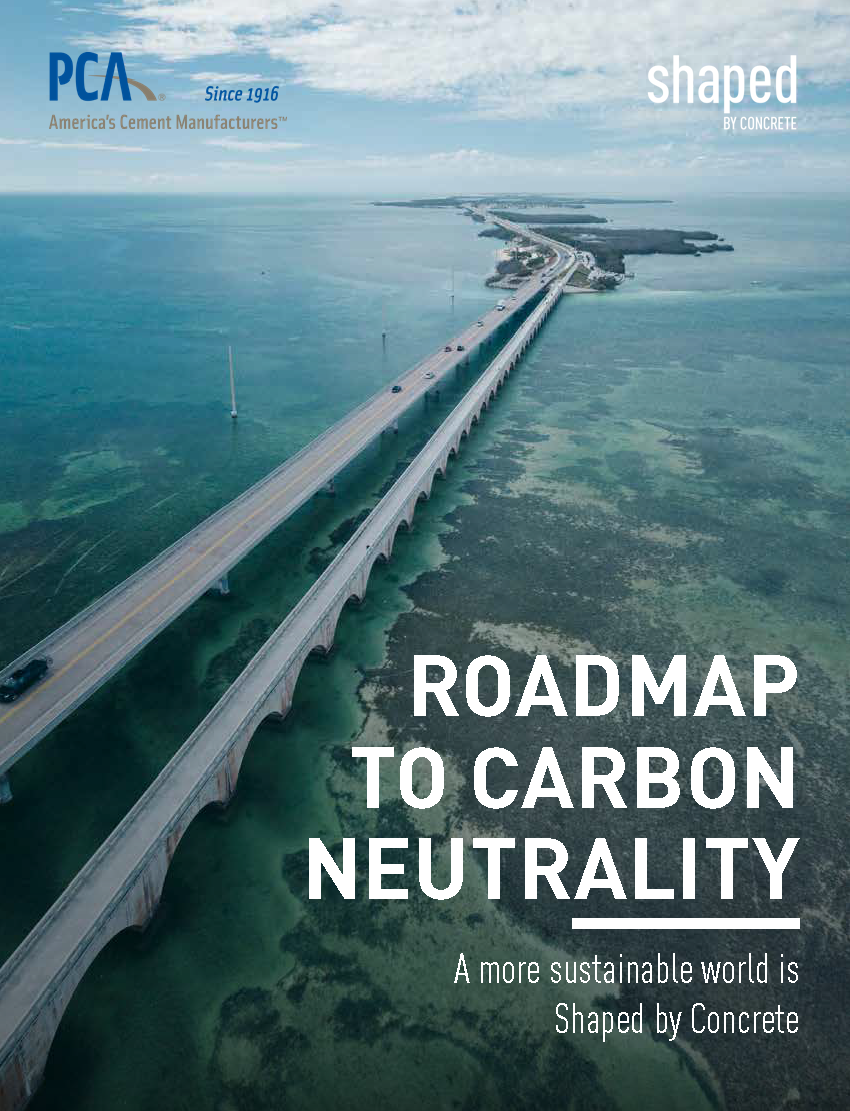National Cement Joins Roadmap
to Carbon Neutrality by 2050
Plan marks major milestone for the U.S. cement and concrete industry
In collaboration with PCA’s other member companies and experts, the Roadmap demonstrates how the U.S. cement and concrete industry can collectively address climate change, decrease greenhouse gases and eliminate barriers that are restricting environmental progress. Given the significant role of cement in society and anticipated infrastructure development, it is critical that the industry comes together and acts now to create sustainable building solutions in the decades to come.
“National Cement Comany is committed to developing sustainable solutions for the needs of construction. We are proud to be part of the PCA Road Map for the carbon neutrality through the value chain,” says Eric Holard, NCC’s CEO.
The Roadmap focuses on a comprehensive range of reduction strategies for stakeholders to adopt across all phases of the material’s life cycle, such as reducing CO2 from the manufacturing process, decreasing combustion emissions by changing fuel sources and shifting toward increased use of renewable electricity.
Many of the solutions included in the PCA Roadmap are products, technologies and approaches that exist today – and by bringing together a variety of collaborators, PCA intends to ensure the adoption of these solutions on a broad scale. This will accomplish near-term benefits while constantly striving toward the long-term success of reaching carbon neutrality.
“Our longtime Ragland, Alabama cement plant is nearing completion of a new 5,000-ton-per-day kiln line that will operate on 100% alternative fuels, mainly biomass, allowing us to provide customers with cement that has an optimized carbon footprint,” says Spencer Weitman, President of National Cement of Alabama.
Industry experts, researchers, policymakers and companies along the value chain are imperative to realize the multitude of solutions that must be developed across policies and regulations, technology, innovation and demand generation – creating both near-and long-term CO2 reduction opportunities and constantly striving toward carbon neutrality.
“The PCA roadmap includes reducing direct emissions from concrete manufacturing and transportation," says Steven Wise, President of National Cement of California. "Our Southern California ready mix operation has replaced diesel trucks with 130 new Compressed Natural Gas (CNG) heavy duty trucks to deliver cement and aggregates to our concrete plants as well as concrete to our customers job-sites. Our fuel source is a Renewable Natural Gas (RNG) which has a negative carbon footprint according to the state of California and reduces CO2 by over 40,000 tons in one year,” he says.
Additionally, cement and concrete companies worldwide have committed to achieve carbon neutrality across the value chain by 2050. Addressing climate change is a global task, but each country presents specific opportunities and unique challenges, and the PCA Roadmap presents a plan tailored to the U.S. cement and concrete industry. PCA is aligned with the Global Cement and Concrete Association’s Roadmap.
View the full Roadmap here
